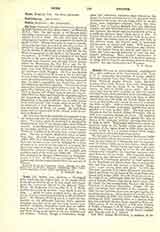

Du Lhut (DULUTH), DANIEL GREYSOLON, SIEUR, b. at Saint-Germain-en-Laye about 1640; d. at Montreal, February 26, 1710. He first served in the French army, becoming a lieutenant in 1657 and a gendarme of the King’s Guard in 1664. He also took part in the campaign in Flanders and was present at the battle of Senef in 1674. During that year he went to Canada, whither he had been preceded by several members of his family, amongst them his cousins, the Tontys. At first he settled in Montreal, but in 1678 left for the West accompanied by his brother, La Tourette, and six soldiers. In 1679 he took possession of the Sioux country in the name of the King of France. He also explored Lake Superior and the high inland plateau where the Mississippi, the Red River, and the St. Lawrence rise, erected the fortified post of Kaministiquia (now Fort William) and afterwards built Fort La Tourette on Lake Nepigon. Du Lhut was the first Canadian to explore the West and it was his privilege to save Father Hennepin from captivity when this famous Recollect missionary, having become separated from La Salle’s expedition, was wandering about in the wilderness near Saint-Antoine. On account of his intrepidity, Du Lhut had great influence over the savages, who admired and feared him; he kept them loyal to France and obliged them to join the expeditions which La Barre and Denonville organized against the Iroquois in 1684 and 1687. In 1686 he laid the foundation of the post of Detroit and in 1696, having been made captain after twenty years of service, was in command of Fort Frontenac. Here, in 1707, he was succeeded by Tonty, his cousin. He died three years later and was buried in the church of the Recollects at Montreal.
Du Lhut was one of the most dauntless pioneer rangers (coureurs de boil) in Canada during the French regime. For thirty years he succeeded in keeping the country to the west of the Great Lakes under French control. Notwithstanding that he had every chance of becoming wealthy, he died poor and Governor Vaudreuil testified to his having been a very upright man. The city of Duluth, Minnesota, takes its name from him. Du Lhut wrote accounts of his journeys (1676-1678), but unfortunately they have been lost; however, we have a plan that he designed for a chain of posts to be erected for the purpose of keeping the lake-route clear of savages and thus facilitating communication between Canada and the western and southern parts of the continent (1683-95). This plan was published by Margry (Découvertes et Etablissements, V, 3-72). In the Library of Congress at Washington may also be found extracts from his account of Detroit.
J. EDMOND ROY

